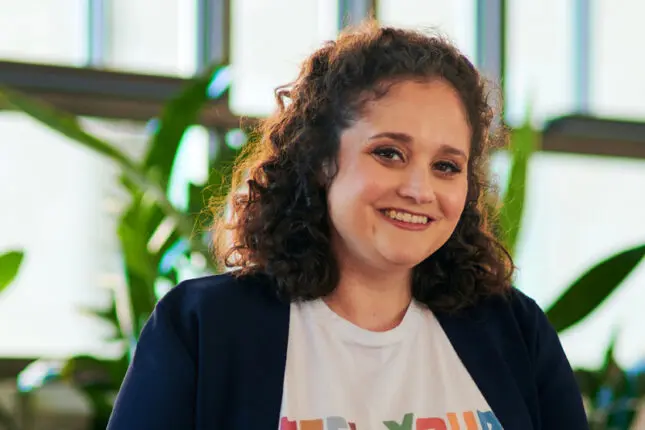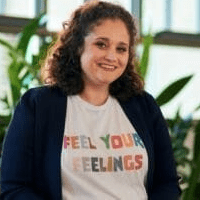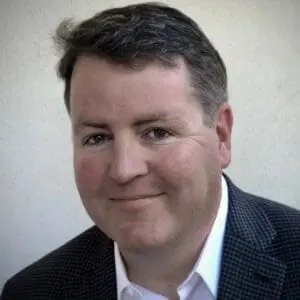The healthcare field needs intensive care.
Not only is it a field filled with high-stress workdays, legendarily rigorous training programs, sparse staff-to-patient ratios, and mountains of bureaucracy to navigate at every turn, but it’s also a field where exposure to physical and emotional trauma is as regular as the sound of beeping machines on an ICU unit. Nonetheless, doctors and nurses are expected to remain calm and dispassionate. Feelings aren’t simply discouraged: they’re seen as a job hazard.
And yet these health care professionals, however heroic, are also human. The work they do impacts them. They need help processing difficult experiences and coping with stress just like the rest of us—or maybe even more than the rest of us. Which begs the question: Who heals the healers? And how?
Jessi Gold, a popular psychiatrist who’s been featured in The New York Times, HuffPost, Time Magazine, and Forbes—and is also the chief wellness officer of the University of Tennessee System—started asking herself these questions during the pandemic. Gold’s recent book, How Do You Feel? One Doctor’s Search for Humanity in Medicine, chronicles her experience helping physicians, nurses, and medical students through that challenging time—along with what she discovered while seeking balance amid intense professional burnout.
Recently, she and I sat down to talk about the state of the healthcare field and how to best help our fellow providers in the medical profession.
Ryan Howes: Why is the medical profession so hard on medical professionals?
Jessi Gold: Medicine has long been one of these fields in which having feelings and being impacted by our work is seen as weakness. Vulnerability isn’t a goal doctors and nurses are supposed to strive for. Rather, it’s seen as a barrier to moving forward in your career. Having feelings is seen as selfish. For example, if I’m your doctor, and you tell me you’re dealing with something hard that strikes a chord in me, or if I see a patient die and it affects me emotionally, then it takes away from you. We learn that’s not what a good doctor does.
RH: So there’s a belief that you’re serving the patient by denying your own humanity.
Gold: The field values hard work and putting other people before oneself, which is understandable. But it often leads to healthcare professionals not feeling, not taking days off, not sleeping, not eating, and not peeing. There are things to admire about selflessness, but absolute selflessness isn’t sustainable. You can’t just give and give. After a while, there will be nothing left to give.
RH: Obviously, we don’t want brain surgeons to be immersed in their feelings in the middle of surgery. But when surgery is done, how can they switch their feelings back on?
Gold: You can detach from your feelings and reactions in the moment to do your job well. The danger arises when your job becomes your existence.
There’s a false assumption that we can detach from our feelings all the time and somehow come out okay. We start that way because we have to, and then it feels like that’s the only way to function because that’s what’s modeled all around us. We worry that if we don’t do that, we won’t be able to handle our jobs. In my book, I share about a time when I was very excited because I didn’t cry in front of a patient, and my therapist was like, “Why is that a good thing? Why are we high-fiving over this?”
I also tell a story about a patient of mine who was an ER doctor who went to an opera, and someone in the audience died. Everyone else was horrified, but she just wanted to get back to the opera. For her, it was like, “Oh, here’s death again.” We become really detached from normal human reactions to things that most people would find very disturbing.
RH: Is it true that going to therapy can have negative career repercussions for medical professionals?
Gold: It is really not true anymore, but you’ll always find someone with a story about a doctor who tried to take care of their own mental health and was somehow punished for it by having their license revoked. This may have happened a lot in the past, when medical licensing boards didn’t understand mental health conditions or how they played out in the workplace. But over time, most of them have changed their mind about the value of mental health treatment. Organizations like the Dr. Lorna Breen Heroes’ Foundation are pushing to change the wording
on some licensing applications, so it doesn’t inadvertently punish people for going to therapy. After all, it’s supposed to evaluate whether you’ll hurt a patient based on your mental health, not whether you’d benefit from therapy. In fact, I was told to go to therapy during my training as a psychiatrist.
Sure, someone can say, “You shouldn’t be practicing while you’re depressed.” But all that means is that it’s in your own best interest—and the best interest of your patients’—to notice signs of depression or burnout early and address them.
Right now, we tend to take a stop-the-bleed approach to care. Also, we tend to overwork to compensate for all kinds of other feelings, because when we overwork, we get praise. It’s the culture we live in. However, we can help people recognize that the more they take care of themselves, the better they are at their job. Taking care of themselves shouldn’t be viewed as a last resort, the way it is in the medical field.
In this culture, we’re all starting at 50 percent burnout, so chances are you can look around and say, “Jimmy looks sadder than me, and Frank isn’t sleeping either, so I think I’m good.” But your measurement scale is out of whack.
RH: How do you distinguish between regular workplace stress and burnout, particularly for healthcare workers and therapists?
Gold: Stress, in general, is a physical response that helps you get stuff done. If you have a test, the stress boosts your adrenaline, and you finish the test. The stress is temporary. Burnout, on the other hand, tends to stick around and decrease your sense of personal accomplishment. You feel ineffective, emotionally exhausted.
RH: What advice would you give a therapist who’s starting to treat a nurse, physician, or other healthcare worker?
Gold: First, I wish there was a certificate program for treating healthcare workers because we’re a weird subculture. Healthcare workers don’t like to talk about how they got to where they are, so knowing a little about their training and what they do in residency—sort of like with any cultural competency—avoids putting them in a situation where they have to educate you or re-explain stuff. What I hear a lot from healthcare workers is that the therapists they like are the ones who don’t give them suggestions that make no sense given their workplace. For example, you can’t tell them to sleep. That’s not helpful. You can say, “What’s your sleep look like?” But you can’t say, “My recommendation is you find a way to get eight hours of sleep a night.” They can’t do that. It’s more important to figure out what they can do.
Teaching quick skills is helpful—deep breathing or other relaxation tools or tips for self-compassion at work. CBT-based exercises are often quick and helpful. It also helps to recognize this population needs you to have some flexibility when scheduling sessions, because their schedule can be erratic. When I was in residency and on night float, my therapist saved me a morning time slot, and if I couldn’t make it, she understood and waived the missed session fee. Recognize that your healthcare worker clients want to come to therapy, but might need an after-hours time, or a weekend slot.
If you want to see healthcare workers, put that on your therapist profile and on your website, even though it’s not an official specialty. Also, understand that healthcare workers are coming from a field that doesn’t talk about mental health often, so it’s hard for them to even be in therapy. Be patient with them. They’re usually not comfortable with feelings, so you’ll get a lot of alexithymia, avoidance, and intellectualization. They might be uncomfortable with the process of therapy for a while. I was—and sometimes still am!
Jessica Gold
Jessica Gold, MD, is a psychiatrist who works with students, faculty, and healthcare workers. She’s the Chief Wellness Officer for the University of Tennessee System, associate professor of psychiatry at the University of Tennessee Health Science Center, and the author of How Do You Feel?: One Doctor’s Search for Humanity in Medicine.
Ryan Howes
Ryan Howes, Ph.D., ABPP is a Pasadena, California-based psychologist, musician, and author of the “Mental Health Journal for Men.” Learn more at ryanhowes.net.













